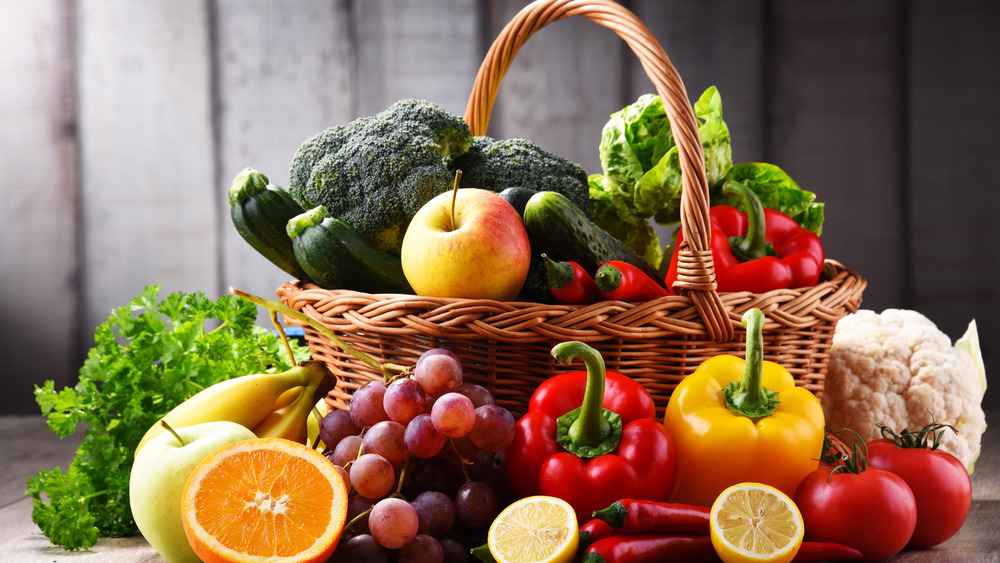What Is The Hallelujah Diet?
The Hallelujah diet is a mostly raw, plant-based diet based on a passage from the Bible (via Healthline). People adhering to the diet are encouraged to eat whole foods and avoid consuming any animal products. Supplements are also highly recommended to help users meet nutritional needs (via WebMD).
Created by Pastor George M. Malkmus, the Hallelujah diet is based on the Bible passage Genesis 1:29, which states, "Then God said, 'I give you every seed-bearing plant on the face of the whole earth and every tree that has fruit with seed in it. They will be yours for food.'" Malkmus claims switching his eating habits to a diet of raw fruits and vegetables and carrot juice saved his life after being diagnosed with cancer more than three decades ago. The diet offers plans specifically for people with cancer, arthritis, irritable bowel syndrome (IBS), diabetes, Alzheimer's, heart disease and autoimmune disease. However, there is no scientific evidence that the Hallelujah diet cures cancer or clears up any other medical conditions.
People following the Hallelujah diet are told to eat 85 percent raw fruits and vegetables and 15 percent cooked plant-based foods. In addition to produce, this allows for consumption of grains, beans, nuts, seeds, oils, and dairy alternatives. All types of meats, dairy, eggs, processed fruits and vegetables, refined grains, and sweets are to be avoided.
Pros and cons of the Hallelujah diet
Since the Hallelujah diet creates a calorie deficit, following it will likely lead to weight loss. Research shows plant-based diets may also reduce the risk of type 2 diabetes, heart disease, and obesity.
However, raw food diets can lead to nutritional deficiencies, including low levels of vitamin B12, vitamin D, and calcium. As a result, people following this diet may need to take supplements to make up for these nutritional gaps. The Hallelujah diet sells supplements through its parent company Hallelujah Acres, and these can become quite costly. Purchasing fresh foods and vegetables and dairy alternatives can also get expensive, especially if these aren't readily available at your local grocery store.
Finally, the Hallelujah diet is highly restrictive and leaves no room for flexibility. This may make it difficult to stick to in the long run. Low-calorie diets can also lead to loss of menstrual cycle and decreased bone mass in women, as well as reduced testosterone in men.


